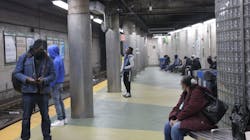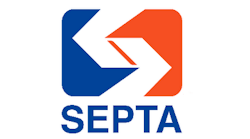Philadelphia, SEPTA team challenge aims to improve transit accessibility through augmented reality tools
The city of Philadelphia’s Office of Transportation, Infrastructure and Sustainability (OTIS), SmartCityPHL and the Southeastern Pennsylvania Transportation Authority (SEPTA) are challenging innovative thinkers to make public transit more accessible through augmented reality technology.
“The pandemic amplified how critical public transit is to Philadelphians,” said Emily Yates, Smart City director. “Our communities rely on public transit to accomplish daily tasks like going to work, school and shopping. We want to make sure that as we reopen, public transit is accessible to all residents and visitors. We believe augmented reality can really help realize this goal and support an equitable recovery.”
Proposals can address any segment of a transit journey from trip planning through arriving at a destination. Applications for the SEPTA for All: Augmenting Transit with Augmented Reality challenge are due Aug. 2, 2021, and winning entries have the potential to be incorporated into SETPA’s Wayfinding Master Plan, an effort to ensure riders receive consistent information.
“Creating an intuitive user experience is a central goal of SEPTA Forward, our new strategic plan,” said Lex Powers, strategic planning manager at SEPTA. “Through our ongoing Rail Transit Wayfinding Master Plan, we’ve been working with riders and community members to improve our signage, maps, language and other communications tools. Now is the perfect time to explore how new technology can help us better serve our riders.”
In a blog post to support the launch of the challenge, SmartCityPHL Pitch and Pilot Fellow Joanna Hecht explains the definition of accessibility within the context of the challenge goes “beyond the physical requirements that facilitate use” as “the ‘disability’ umbrella is a broad one.”
“Disabilities can impact mobility, cognition, ability to live independently, hearing, vision or ability to care for oneself. When it comes to using public transit, people with different disabilities have some needs that overlap and others that are distinct. Challenge participants are encouraged to choose a specific target audience and design a solution that caters to their needs,” wrote Hecht.
Challenge organizers recognize users are most familiar with augmented reality within games, but note the technology combines digital and real-life content to enhance experiences, which means augmented reality can have applications beyond games.
“This challenge is an opportunity to think creatively about how people with diverse needs navigate our city,” said Mike Carroll, deputy managing director for OTIS. “As we continue to update physical infrastructure to increase access, augmented reality can help public transit in Philadelphia feel more welcoming to all.”
Philadelphia, along with Long Beach, Calif., and Raleigh and Cary, N.C., was selected earlier this year to host an augmented reality developer competition. Support for the challenge is provided by US Ignite, Facebook Technologies and Comcast. The Institute on Disabilities at Temple University has also provided support in shaping the event.
SmartCityPHL also invites people with disabilities to share their experiences with navigating public transit through a survey, available online through July 17. Survey results will help inform ideas and solutions for the challenge.
Survey results will be made public and shared at the challenge kickoff event on July 19 to provide insights that can help innovators refine their ideas.
The challenge will take part in three phases:
- An open application process will collect ideas and information about teams’ capabilities. Applications are due on Monday, Aug. 2 at 5:00 p.m.
- A judging panel will select up to 12 semi-finalists to present their ideas at a virtual pitch event on Friday, Aug. 20. Up to six teams with the top pitches will move on to the final round and receive small grants to develop working prototypes of their ideas.
- At a “Demo Day” on Tuesday, Oct. 26, winning teams will be chosen from among the six finalists to receive a total of more than $30,000 in cash prizes and pilot their idea with SEPTA and the city.
Prospective applicants can find more information, including application and timeline, at phila.gov/septa-for-all.

Mischa Wanek-Libman | Group Editorial Director
Mischa Wanek-Libman is director of communications with Transdev North America. She has more than 20 years of experience working in the transportation industry covering construction projects, engineering challenges, transit and rail operations and best practices.
Wanek-Libman has held top editorial positions at freight rail and public transportation business-to-business publications including as editor-in-chief and editorial director of Mass Transit from 2018-2024. She has been recognized for editorial excellence through her individual work, as well as for collaborative content.
She is an active member of the American Public Transportation Association's Marketing and Communications Committee and served 14 years as a Board Observer on the National Railroad Construction and Maintenance Association (NRC) Board of Directors.
She is a graduate of Drake University in Des Moines, Iowa, where she earned a Bachelor of Arts degree in Journalism and Mass Communication.



